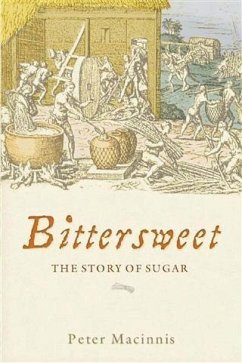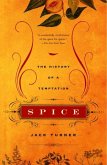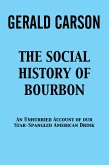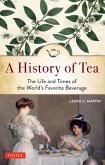Forty years after first chewing on sugar cane in New Guinea, the home of sugar, the author underwent some complex dental work as a direct result of his sweet tooth. This led him to explore sugar cane's journey from New Guinea to Shakespeare's England. In the days before dentistry, people paid dearly for this sweet new food from exotic places. Queen Elizabeth I became so partial to hippocras, sugared almonds and pastilles that her teeth turned completely black.Bittersweet is full of ripping yarns and acts of bastardry. Through the ages, sugar has offered opportunities of tremendous riches to the unscrupulous few who grew and sold it. But in the days of manual processing, these fortunes were built on the backbreaking labour of slaves.Bittersweet explores the effects that sugar has had on the world. A foodstuff we take for granted and indulge in more than we should has caused wars and geopolitical balances that have shaped the modern world and the power balances we see in the 21st century.'The breadth of the connections Macinnis weaves through his tale continually surprises, all the more because the substance sugar is so deceptively simple that, before this book, we have taken it for granted. He has put his encyclopaedic knowledge to excellent use, placing science and technology naturally in a social context.' - Dr Peter Pockley, Australasian Correspondent for Nature.'Few foods have had such an impact on human history as sugar, from its origins, its influence on the slave trade and its use as a medicine, a luxury, a comfort food and now a cheap filler in the modern processed food supply. Peter Macinnis has traced its path carefully, cleverly crafting the story of all its sweet and sour effects.' - Dr Rosemary Stanton, Nutritionist.
Dieser Download kann aus rechtlichen Gründen nur mit Rechnungsadresse in A, B, BG, CY, CZ, D, DK, EW, E, FIN, F, GR, HR, H, IRL, I, LT, L, LR, M, NL, PL, P, R, S, SLO, SK ausgeliefert werden.









